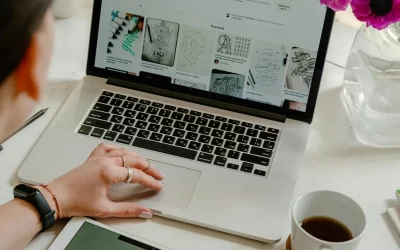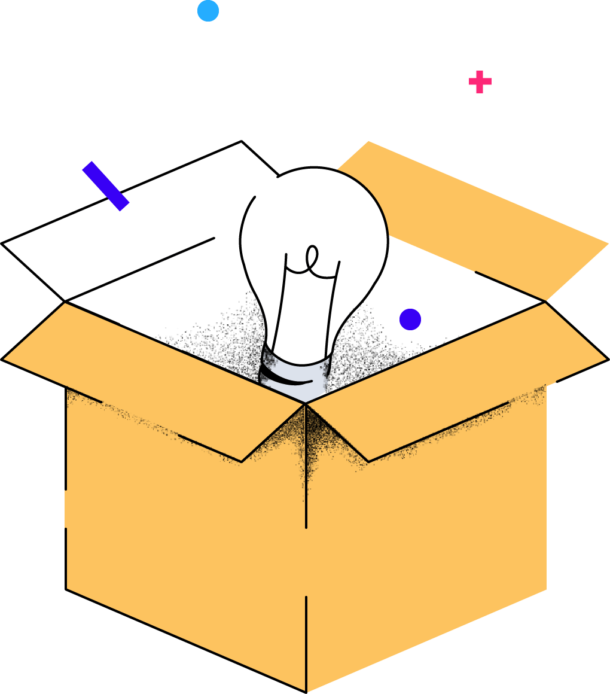Table of Contents
Introdution
Understanding the Interview Process
Preparation for a Successful Interview
Effective Communication Techniques
Managing Interview Anxiety
Post-Interview Follow-Up
Utilizing a Job Search Template for Success Conclusion
Introduction
Landing your dream job requires more than just having the right qualifications—it’s about acing the interview. A successful interview can set you apart from other candidates and showcase your true potential to prospective employers. In this guide, we’ll explore essential tips and strategies to help you prepare for, execute, and follow up on interviews with confidence. From understanding the interview process to managing anxiety, our comprehensive advice will equip you with the tools needed to achieve interview success. Let’s dive in and start your journey towards a successful interview and a brighter career future.
Understanding the Interview Process
The Importance of the Interview
Interviews are a crucial step in the hiring process, providing both the employer and the candidate an opportunity to evaluate each other. For a successful interview, it’s essential to understand the interview’s purpose and structure. Employers use interviews to assess a candidate’s fit for the role, company culture, and team dynamics. Therefore, demonstrating your knowledge, skills, and personality effectively can make a significant difference.
Additionally, interviews are not just about the employer evaluating you; they are also your chance to assess the company. Use this opportunity to ask insightful questions about the company’s goals, team structure, and work environment. This will help you determine if the company aligns with your career aspirations and values.
Different Types of Interviews
Interviews come in various formats, each with its unique approach and expectations. Understanding these formats is key to achieving success in interviews. Common types include:
- Telephone Interviews: Often used for initial screenings to quickly assess a candidate’s qualifications.
- Video Interviews: Increasingly popular due to remote working trends, they combine the convenience of remote interviews with the advantage of face-to-face interaction.
- Panel Interviews: Conducted by multiple interviewers to get a comprehensive view of the candidate from different perspectives.
- Behavioral Interviews: Focus on past experiences to predict future performance, often using the STAR method (Situation, Task, Action, Result).
Each type of interview requires specific preparation and strategy. Familiarize yourself with the nuances of each format to maximize your performance.
The Role of Research
Thorough research is fundamental to interview success. Research the company, its culture, recent achievements, and industry standing. Understanding the company’s mission and values allows you to tailor your responses and demonstrate how your background aligns with the organization’s goals. Additionally, researching the role itself helps you prepare for specific questions and showcase relevant skills and experiences.
Researching the interviewers, if possible, can also provide an edge. Knowing their roles, backgrounds, and interests can help you build rapport and tailor your responses to their specific concerns and priorities.
Preparation for a Successful Interview

Resume and Cover Letter Review
Before the interview, review your resume and cover letter. Ensure they are up-to-date and accurately reflect your skills and experiences. Highlight your most relevant achievements and be prepared to discuss them in detail. Tailoring these documents to the specific job description can make a strong impression on the interviewers.
Make sure your resume is clear, concise, and free of errors. A well-structured resume that highlights your accomplishments and relevant experience will help you stand out. Similarly, a tailored cover letter that addresses the specific job and company shows that you have done your homework and are genuinely interested in the position.
Practicing Common Interview Questions
Preparation involves practicing common interview questions. This includes both general questions like “Tell me about yourself” and role-specific queries. Practicing your responses helps you articulate your thoughts clearly and confidently. Consider using the STAR method to structure your answers for behavioral questions.
It’s also beneficial to prepare for difficult questions or those that might catch you off guard. Practice responding to questions about gaps in your employment, reasons for leaving previous jobs, and your strengths and weaknesses. Being prepared for these questions can help you remain composed and confident during the interview.
Mock Interviews
Conducting mock interviews with a friend or mentor can be incredibly beneficial. Mock interviews simulate the actual interview environment, providing practice in real-time responses and receiving constructive feedback. This process helps in refining your answers, improving your body language, and boosting your confidence.
In addition to practicing with a friend or mentor, consider recording yourself during a mock interview. Reviewing the recording can help you identify areas for improvement in your delivery, such as filler words, tone of voice, and non-verbal cues.
Effective Communication Techniques
Verbal Communication
Clear and concise verbal communication is essential for a successful interview. Pay attention to your tone, pace, and volume. Avoid using filler words and focus on delivering your answers confidently. Practicing your answers aloud can help you become more comfortable with speaking about your experiences and qualifications.
When answering questions, aim to be specific and provide examples that highlight your skills and achievements. This not only makes your responses more engaging but also helps the interviewer understand the impact of your contributions.
Non-Verbal Communication
Non-verbal cues play a significant role in how your responses are perceived. Maintain good eye contact, offer a firm handshake, and sit up straight to convey confidence. Be mindful of your facial expressions and gestures, as they can reinforce your spoken words. Positive body language can significantly enhance your overall interview performance.
Pay attention to the interviewer’s non-verbal cues as well. Nodding, smiling, and maintaining eye contact can indicate engagement and interest, while crossed arms or lack of eye contact might suggest the need to adjust your approach.
Active Listening
Active listening is a critical aspect of effective communication. It involves fully concentrating on the interviewer, understanding their questions, and responding thoughtfully. Nodding and summarizing key points during the conversation shows that you are engaged and respectful. This technique helps build a positive rapport with the interviewer and ensures you address their concerns accurately.
Active listening also means not interrupting the interviewer and allowing them to finish their questions or comments before responding. This demonstrates respect and patience, and it helps you gather your thoughts before answering.
Managing Interview Anxiety
Identifying Triggers
Recognizing what triggers your interview anxiety is the first step towards managing it. Common triggers include fear of rejection, lack of preparation, or unfamiliarity with the interview process. Understanding your triggers allows you to address them directly and develop coping strategies.
One effective way to identify your triggers is to reflect on past interview experiences. Think about what made you most anxious and how you reacted. This self-awareness can help you anticipate and manage similar feelings in future interviews.
Relaxation Techniques
Implementing relaxation techniques can help calm your nerves before and during the interview. Techniques such as deep breathing, progressive muscle relaxation, and visualization can reduce anxiety levels. Practicing these methods regularly can improve your overall stress management skills, contributing to a more composed interview performance.
For example, take a few minutes before the interview to practice deep breathing exercises. Inhale deeply for a count of four, hold for a count of four, and exhale for a count of four. Repeat this several times to help calm your nerves.
Building Confidence
Building confidence involves preparation and positive self-talk. Remind yourself of your achievements and strengths. Rehearse your answers and visualize a successful interview outcome. Confidence comes from knowing you have prepared thoroughly and have the skills and experience needed for the job.
In addition to self-talk, consider creating a “confidence journal” where you document your accomplishments and positive feedback from others. Reviewing this journal before an interview can boost your confidence and remind you of your capabilities.
Post-Interview Follow-Up
Sending a Thank-You Note
After the interview, it’s important to send a thank-you note to express your gratitude for the opportunity. A well-crafted thank-you note reinforces your interest in the position and leaves a positive impression. Mention specific points discussed during the interview to personalize your message.
For example, you might say, “Thank you for taking the time to discuss the [Position] role with me. I enjoyed learning more about [Company] and the exciting projects your team is working on. I am particularly excited about the opportunity to contribute to [specific project or aspect discussed].”
Reflecting on the Interview
Take time to reflect on your interview performance. Identify areas where you excelled and aspects that could be improved. Reflecting on the experience helps you learn and grow, making you better prepared for future interviews.
Consider keeping a journal of your interview experiences. Write down the questions asked, your responses, and any feedback you received. This can help you track your progress and identify patterns in your performance.
Staying Patient
The waiting period after an interview can be stressful, but it’s important to stay patient. Follow up politely if you haven’t heard back within the given timeframe. Meanwhile, continue your job search and keep preparing for other opportunities.
Remember that the hiring process can take time, and a delay doesn’t necessarily mean a negative outcome. Stay proactive in your job search and use the waiting period to further refine your skills and interview techniques.
Utilizing a Job Search Template for Success
To further support your interview preparation and job search, consider utilizing a job search template designed to streamline your efforts. This template provides an easy data entry system and automatically visualizes key data about your job search on your dashboard.
Benefits of the Job Search Template
The template helps you stay organized by tracking your applications, interviews, and follow-up activities. It also highlights important tasks such as applications approaching deadlines and upcoming interview preparations. By keeping all your job search information in one place, you can efficiently manage your efforts and ensure you don’t miss any critical steps.
How to Access and Use the Template
To benefit from this powerful tool, download The Job Tracking Spreadsheet and start inputting your job search data. The template will help you visualize your progress, identify areas for improvement, and stay on top of your job search tasks. This organized approach can significantly enhance your chances of achieving success in interviews and securing your desired job.
Conclusion
Achieving success in interviews requires a combination of preparation, effective communication, and confidence. Understanding the interview process, preparing thoroughly, and managing anxiety are key steps towards a successful interview. Remember to follow up with a thank-you note and reflect on your experience to continuously improve. By implementing these strategies and utilizing tools like a job search template, you can enhance your interview performance and increase your chances of landing the job.





0 Comments